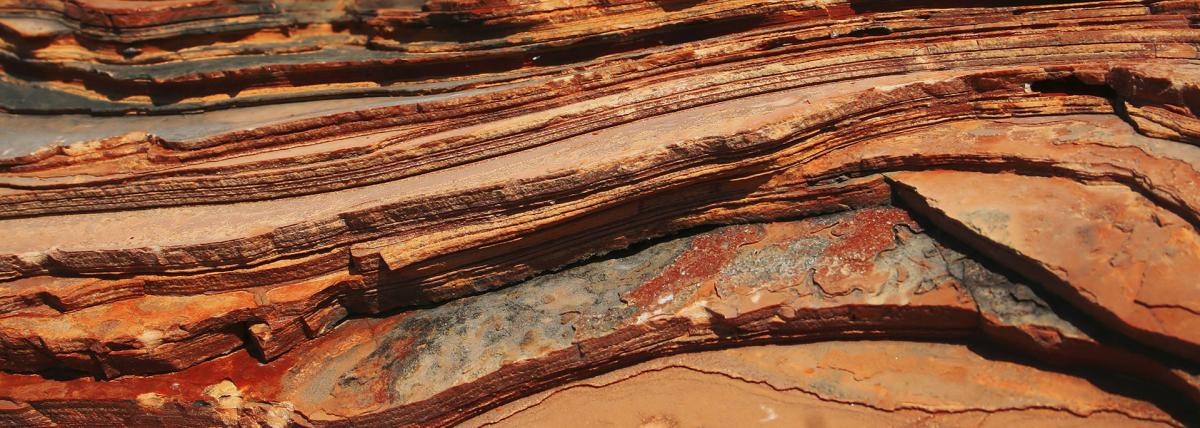Grades:
2nd Grade
This lesson is to introduce students to coding using EdScratch and Edison Robots. Students use LEGOs to build a house for grandma and figure out a way to keep her safe.
Grades:
8th Grade
Using rock salt, ice, juice, and thermometers, students will use their inquiry framework to investigate how slushies are made and see if they are able to replicate the results of a traditional slushy
Grades:
5th Grade
In this lesson, students will create a model of the solar system by shrinking the dimensions of the distances. Students will read an informational text about the features of the planets and view a
Grades:
7th Grade
This engaging lesson is designed to simulate how scientists look for patterns in evidence to make claims, and back them up with reasoning. There are some important takeaways that students will make
Grades:
7th Grade
In this interactive lesson, students will create a Duplo Lego Vehicle and test how forces affect motion. Students will be placed in groups of 3-4 and be given a force to test. They will decide which
Grades:
5th Grade
In this fun lesson, students create models of the Earth, sun, moon, and planets that can go on robots. They experiment with light and movement to demonstrate the rotation of sun, earth, and moon using
Grades:
3rd Grade
Students will tend to their garden boxes and observe the plants that are starting to grow. Students will take measurements and start a graph on growth throughout the growing cycle of their garden
Grades:
9th Grade, 10th Grade
In this hands-on lesson, students work with a partner to construct a functioning, usable sprinkler. Students use basic principles of engineering to create this prototype and test it out for adequate
Grades:
3rd Grade, 4th Grade, 5th Grade
Students will be learning and practicing the concepts of reflection and refraction through this engaging STEM activity.
Grades:
3rd Grade
SUMMARY: This lesson challenges 3rd grade students to apply their knowledge of the physics of light by having them design, create, and test an obstacle course that their beam of light must navigate
Grades:
6th Grade, 7th Grade, 8th Grade
In this engaging lesson, students will examine the surface of the Moon to consider hazardous conditions that NASA may find there. Then, they will investigate several hazards (dust, boulders, and
Grades:
5th Grade, 6th Grade
This is an introductory lesson designed for a robotics after-school session involving materials and equipment from VEX robotics and coding. Students explore robotics, discuss the tasks robots can
Grades:
6th Grade, 7th Grade, 8th Grade
This is an 8-lesson unit that is designed to be used together to learn about the health and diversity of your local watershed by placing leaf packs into a water source (natural or man-made ponds
Grades:
6th Grade
This is the second part of the egg drop challenge. Students will improve on their original design and make a new design to test and analyze.
Grades:
1st Grade
In this hands-on lesson, students will listen to "The Water Princess" by Susan Verde and then create their own water filtration system in a small group. Students will consider questions like, "How can
Grades:
6th Grade
Can one organism turn an ecosystem upside down? In this engaging lesson, students use an interactive site (hhmi biointeractive) to understand and answer how a species becomes invasive, analyze
Grades:
5th Grade, 6th Grade, 7th Grade, 8th Grade
In this engaging lesson students are introduced to the key computational concept of variables using Edison robots and the Scratch-based programming language EdScratch4. Variables, which can be created
Grades:
6th Grade, 7th Grade, 8th Grade
This is an 8-lesson unit that is designed to be used together to learn about the health and diversity of your local watershed by placing leaf packs into a water source (natural or man-made ponds
Grades:
5th Grade
In this lesson, students comprehend basic physics concepts that are applicable to constructing a device that protects an egg from breaking when dropped. Team building and self-reflection are key
Grades:
4th Grade
Students will be able to design a method of protection for the Earth’s land that would withstand the impact of rainfall on soil and prevent erosion. Students will discover that the soil with
Grades:
6th Grade, 7th Grade, 8th Grade
This hands-on science lesson will help students get a more accurate view of the solar system by making a scale model with play dough, balloons, rulers, and tape!
Grades:
5th Grade, 6th Grade, 7th Grade, 8th Grade
Building on the programming concepts explored in part 1, this lesson asks students to re-imagine the ‘spiral-out’ program to be a spiral-in program instead. Designed to be a stepping-stone activity to
Grades:
Kindergarten, 1st Grade
Students build the tallest beanstalk they can with the provided materials. They then measure it and compare their beanstalk heights. This pairs perfectly with a read aloud of Jack and the Beanstalk!
Grades:
9th Grade, 10th Grade
In this lesson plan, students make use of their knowledge about homoestasis, osmosis, and types of solutions to design their own science investigation that will enable them to prove and answer: Why it
Featured Lesson Plans
Check out these notable lesson plans.

Grades:
4th Grade
This interactive 4th-grade lesson plan focuses on erosion and weathering, key concepts in understanding Earth's geology. In "Dynamic Earth," students use an interactive simulation to explore how

Featured
Sailing Down the Road: Part 2
Grades:
4th Grade, 5th Grade
This is part 2 of a two part lesson called Sailing Down the Road. In this lesson students will design a sail that can successfully catch the wind and cause their cardboard car (from part 1) to drive

Grades:
4th Grade
Explore Coal Mine Canyon's wonders! Watch a documentary, read about geology, draw the canyon, and use tech to learn about geological layers. Fun, interactive learning awaits!


